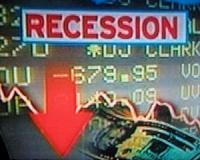| . |  |
. |
Shanghai (AFP) July 21, 2010 Anthony Bolton, the star British fund manager known as the "Quiet Assassin" for his boardroom coups, is staking his reputation on China's consumer boom and proving the China bears wrong. The Fidelity money manager has postponed his retirement to tap into China opportunities and is betting that concerns about debt, bad loans and property bubbles will recede and China will top every international investor's list. "If I am right about China and what I see in the next few years, what's been happening internationally will reverse. The extreme China bears will be proven wrong," Bolton said in a group interview. Bolton, 60, said he was bitten by the bug in November while mentoring Fidelity team members in Hong Kong just before he was due to retire this year. Looking at Chinese companies inspired his new China Special Situations fund. Bolton built a name as Britain's top fund manager running Fidelity's Special Situations fund, earning an average annual return of nearly 20 percent during his 27-year tenure before stepping down in 2007. The "Quiet Assassin" moniker stuck after he used his fund's shares to block Carlton Communications boss Michael Green from becoming chairman of the newly merged ITV television network in 2003. "People ask me: 'Anthony, why have you done it? What's the upside? ... If you do a good job, everyone will say that's what we expect, but if you do a bad job you will have ruined your reputation.'" "That's not how I look at life. You've got a limited life and you've got to do what's interesting and excites you ... I wanted to do it and if I ruin my reputation, so what? That's not high on my list of priorities." Bolton spoke with a small group of reporters Tuesday after the launch of the Chinese translation of his latest book on the Bund, Shanghai's neoclassical riverfront that was once known as the Wall Street of Asia. "It's a big change for me. It's the first time I've lived outside the UK," he said, adding that the apartment he bought in Hong Kong was a sign of his commitment to the fund, which he will run for at least two years. While Bolton said he expects China's growth to slow, even that slower expansion will become attractive against a global backdrop of extremely low growth. His strategy is to find the same types of companies that helped made his British fund a success. His top 10 holdings include mainland mobile operators China Mobile and China Unicom, Internet company Tencent Holdings, Industrial and Commercial Bank of China and Ping An Insurance, according to information released in London, where the fund is registered. Bolton said China is in an investment "sweet spot" because its steadily rising population and rapidly increasing consumption are forming an "S-curve". "We have never seen an economy as big as China go into an S-curve," Bolton said, referring to the Asian giant's exponential growth that is expected to taper off gradually as it matures. He has met with more than 150 companies in the areas he is targeting: hotels, retailers, package holidays and media companies. He is avoiding commodities and heavy industry. He prefers private firms to state-owned ones. But he does not see a big opportunity in the Shanghai stock market, which the Financial Times has described as a "basket case" for its tendency to be driven by anticipation of government policies over fundamentals. "The problem for Shanghai at the moment is it's a very insulated market so you know it operates quite uninfluenced by the rest of the world," Bolton said. The fund currently has 12 percent invested in Shanghai shares -- but only in dual-listed companies whose mainland shares are cheaper than their Hong Kong market price. "At the moment I don't want to put a lot there," he said. He acknowledged the problems with transparency and corporate governance in China -- shareholder-elected boards do not exist -- but said those are common features in emerging markets. "The authorities want to make Shanghai a leading financial centre by 2020. They want to open the currency. I think there will be dramatic changes over the next 10 years here," he said.
Share This Article With Planet Earth
Related Links The Economy
 Walker's World: A 9-year recession?
Walker's World: A 9-year recession?Paris (UPI) Jul 19, 2010 A melancholy anniversary has come. It is now three years since the Great Recession began with the announcement by the ratings agencies that they were downgrading mortgage-backed securities and collateralized debt obligations. This is already the deepest recession since World War II and will soon be the longest. Each new sign of hope is followed by a new setback, like this year's euro cr ... read more |
|
| The content herein, unless otherwise known to be public domain, are Copyright 1995-2010 - SpaceDaily. AFP and UPI Wire Stories are copyright Agence France-Presse and United Press International. ESA Portal Reports are copyright European Space Agency. All NASA sourced material is public domain. Additional copyrights may apply in whole or part to other bona fide parties. Advertising does not imply endorsement,agreement or approval of any opinions, statements or information provided by SpaceDaily on any Web page published or hosted by SpaceDaily. Privacy Statement |